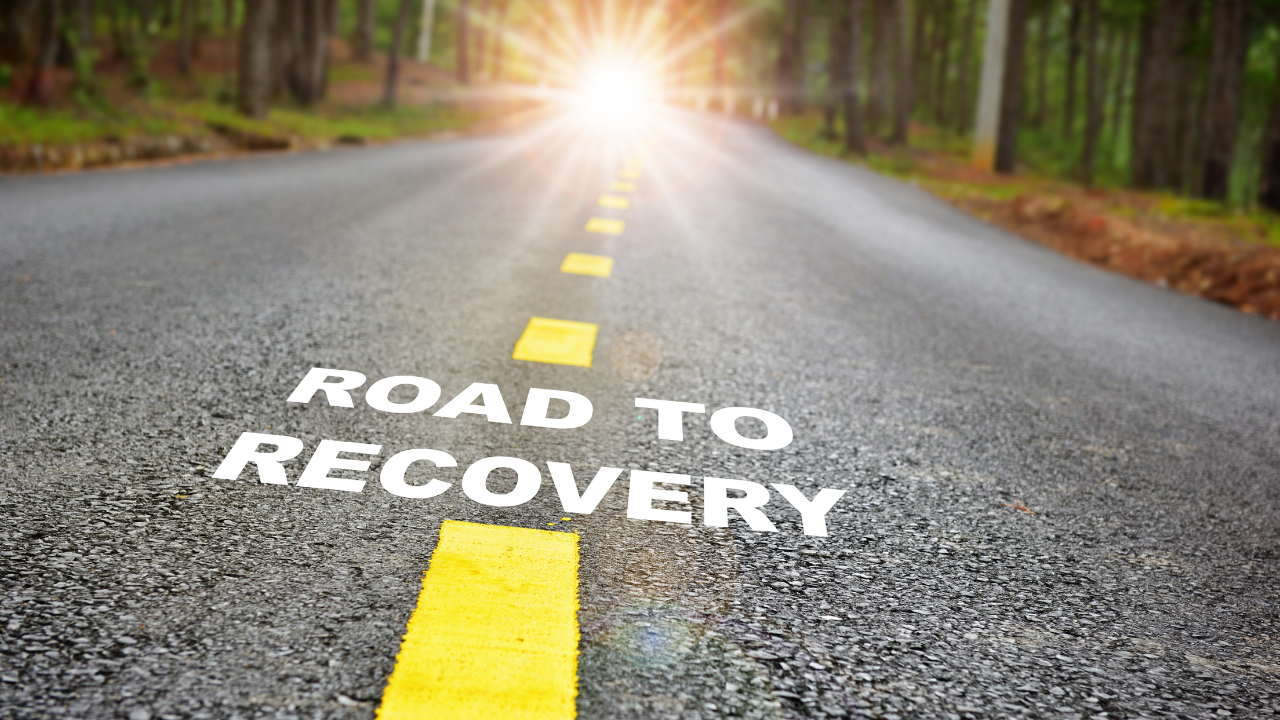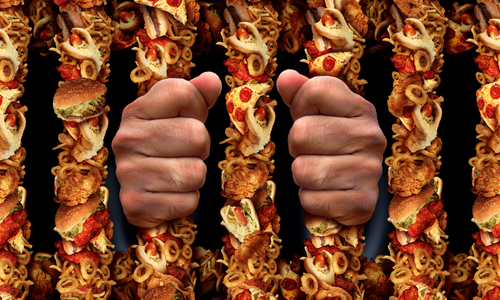4 Reasons why it is difficult to recover from Food Addiction | Part 2 of 2

Issue No. 5 | Brought to you by the Addiction Reset Community – ARC
Unlocking the secrets of processed food addiction and guiding you to find freedom from food and weight obsession.

Food addiction may be more difficult to put into remission than drug addiction. Due to availability, lots of triggers, misinformation, and the skills required for recovery, food addiction can be tough to overcome.
In the last issue of our newsletter, we shared two reasons why your efforts to get control of your food may have failed. Here are two more reasons why this may be happening:
Research shows that processed foods are addictive

- Different processed foods are combined into ‘poly-substance’ use - which is harder to treat than single-substance use. Fast food meals typically contain sweeteners, flour, gluten, processed fats, salt, dairy, and caffeinated drinks.
- Processed foods can be more addictive than recreational drugs. Sugar has been shown to reach the brain faster and more powerfully than cocaine when administered similarly. Rats choose sugar and saccharin over heroin and cocaine. High Fructose Corn Syrup has been shown to act on the body like corn alcohol.
- A withdrawal syndrome has been shown for processed fat and for packaged foods.
- Caffeine has several diagnoses in the Diagnostic Manual for Mental Illness published by the American Psychiatric Association.
- Dairy and gluten both contain a naturally occurring morphine that acts on the brain like opiates.
The food industry, government, media and schools promote food addiction

- Having adopted neuro-marketing tactics from the tobacco industry, the food industry pushes food addiction by extensively advertising highly addictive ‘food-like’ substances and making them easily available and affordable to people, from a very young age.
- The food industry is 13 times bigger than the tobacco industry and remains a powerful lobby to influence governments. Regulation of additives and labelling is ineffective and the food industry may add addictive formulations to our food, without our knowledge.
- Some governments subsidize the farming of addictive crops such as sugar, wheat, and corn.
- Government regulations may require schools to buy and serve addictive foods containing gluten and dairy. Schools make addictive food and drinks available in the classroom, cafeteria, and vending machines.
- The media tells us we don’t have time to cook and eating healthy is expensive. Research shows that Media earns about $10 billion per year from the food industry.
- Food addicts come into recovery with a tremendous amount of erroneous information gained in many cases from sources that the addict trusted. Letting go of misguided ideas adds to the burden of recovering from food addiction.

Within the Addiction Reset Community (ARC) our members and their journeys are important to us. We find their stories inspiring and hopeful for everybody in health recovery.
I started my health journey when my oldest son had seizures and food allergies and I had my own high cholesterol issues. I learned about keto and haphazardly implemented it in 2004, but still have the white stuff (sugar and flour) around. It wasn’t until 2007 when I first went into Overeaters Anonymous that I learned about Food Addiction. I joined several groups and 12-step programs.
To get help, I even went to a day treatment program for an eating disorder for a few weeks and came out with nothing changed but more pain. The cravings were never addressed in my years of searching. I finally found how my brain chemistry just cannot take any sugar, flours, and grains. I would continue to mind-numbingly over-ingest those without fail once I started to eat them.
The only thing I never gave up on is hope. Now, as a member of the Addiction Reset Community (ARC), and training as an ARC Manager, I’m beyond grateful that this new safer approach in recovery and treatment has kept my eyes wide open. I have found my purpose and am working full-time on this calling now.

Many people reach out to Joan asking for advice and assistance on how they can begin their recovery journey.
Dear Joan
It's hard for me to type this, but keeping it in makes me have shame and having shame makes me wanna eat. So... I've been eating a lot of fast food and it's really hard for me to stop. I've tried to give it up but my friends, who are thin, always want to eat fast food and when we would hang out, I would overeat, because I'm craving everything on the menu, eat it and regret it afterwards and even get addicted again and craving it again tomorrow and starting the cycle all over again.
Joan responds:
I’m so sorry that you are going through the pain of loss of control. Shame often comes from a lack of understanding of the addicted brain. People who don't understand addiction, may make the addicted person feel like a failure. People who don't understand, blame the addicted person for lapsing when it was really triggered from the food industry that caused the lapse. Repeated failure makes the addicted person ashamed even though none of it was their fault.
This is not your fault. This is a severe addiction and it requires effective recovery techniques to put it into remission.
DISCLAIMER:
Dr Joan Ifland (PhD) is a global expert on the subject of processed food addiction and is not a medical doctor. Information and response shared in this Newsletter are not intended for, and should not be construed as medical advice.

Do you have a question? Reach out to us with your questions about food addiction and recovery at gethelp@foodaddictionreset.com
Are you showing signs of Processed Food Addiction? Take this self-quiz to find out now!

Recent copies of Dr Joan Ifland's Blog:

